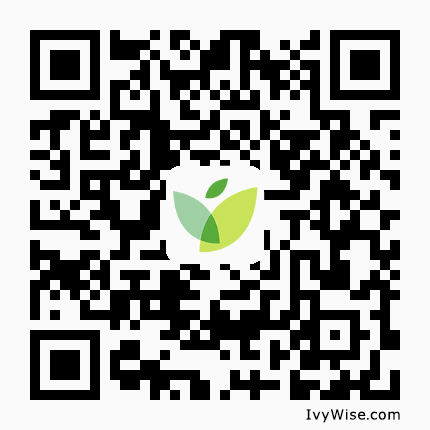
When it comes to your college application, colleges will look to see how you spent your time outside of school. In addition to your extracurricular activities, you may also want to list hobbies and interests that you commit a significant amount of time to. Reading is probably one of the best hobbies you can have – it can deepen your interests in a particular subject, help you become a better writer, and will prepare you for the often grueling reading lists in college-level courses. Not only will many colleges appreciate a reading list, some will ask you to list your favorite books on their application supplements.
Regardless of what you read, summer is a great time to soak up some extra knowledge and luckily, it can be done while also soaking up some sun at the beach or by the pool! During the school year, we suggest students read at least one book per month outside of your required reading, but summer is a great time to dive in to a sea of page-turners. To help you get started, the counselors at IvyWise offer the following suggestions for summer reading:
9th Grade
- Things Fall Apart by Chinua Achebe
- Tuesdays With Morrie by Mitch Albom
- Dibs in Search of Self by Virginia M. Axline
- The Alchemist by Paulo Coelho
- Narrative of the Life of Frederick Douglass: An American Slaveby Frederick Douglass
- Nickel and Dimed by Barbara Ehrenreich
- The House of the Scorpion by Nancy Farmer
- Anne Frank: The Diary of a Young Girl by Anne Frank
- The Princess Bride by William Goldman
- Lord of the Flies by William Golding
- The Canterbury Tales by Geoffrey Chaucer
- The Scarlet Letter by Nathaniel Hawthorne
- Siddhartha by Hermann Hesse
- The Outsiders by S.E. Hinton
- Flowers for Algernon by Daniel Keyes
- A Wrinkle in Time by Madeleine L’Engle
- The Lion, The Witch, and the Wardrobe (The Chronicles of Narnia) by C.S. Lewis
- The Crucible by Arthur Miller
- Animal Farm by George Orwell
- The Golden Compass, The Subtle Knife, The Amber Spy Glass, The Ruby on the Stone by Philip Pullman
- Holes by Louis Sachar
- Romeo and Juliet by William Shakespeare
- Diary of Dawid Sierakowiak by David Sierakowiak
- Brighton Beach Memoirs by Neil Simon
- Treasure Island by Robert Louis Stevenson
- Eragon by Christopher Paolini
- The Great Gatsby by F. Scott Fitzgerald
- Our Town by Thornton Wilder
- The Effect of Gamma Rays on the Man-in-the-Moon Marigoldsby Paul Zindel
- The Pigman by Paul Zindel
10th Grade
- I Know Why the Caged Bird Sings by Maya Angelou
- The Shakespeare Stealer by Gary L. Blackwood
- The Cherry Orchard by Anton Chekhov
- A Tale of Two Cities by Charles Dickens
- The House on Mango Street by Sandra Cisneros
- Of Mice and Men by John Steinbeck
- 1984 by George Orwell
- Childhood’s End by Arthur C. Clarke
- Educating Esme: Diary of a Teacher’s First Year by Esme Raji Codell
- The Red Badge of Courage by Stephen Crane
- Boy by Roald Dahl
- As I Lay Dying by William Faulkner
- Miracle Worker by William Gibson
- Brave New World by Aldous Huxley
- A Separate Peace by John Knowles
- To Kill a Mockingbird by Harper Lee
- Death of a Salesman by Arthur Miller
- Beloved by Toni Morrison
- Shakespeare Alive by Joseph Papp and Elizabeth Kirkland
- A Day No Pigs Would Die by Richard Peck
- Anthem by Ayn Rand
- Their Eyes Were Watching God by Zora Neale Hurston
- All Quiet on the Western Front by Erich Maria Remarque
- A Midsummer Night’s Dream by Shakespeare
- Walden by Henry David Thoreau
- The Sunflower by Simon Wiesenthal
- The Glass Menagerie by Tennessee Williams
- The Piano Lesson by August Wilson
11th and 12th Grade
- Water for Elephants by Sara Gruen
- Snow Flower and the Secret Fan by Lisa See
- Lace Reader by Brunonia Barry
- Slaughterhouse-Five by Kurt Vonnegut
- The Perks of Being a Wallflower by Stephen Chbosky
- Three Cups of Tea by Greg Mortenson & David Oliver Relin
- Stones Into Schools by Greg Mortenson & David Oliver Relin
- Girl in Translation by Jean Kwok
- The Bell Jar by Sylvia Plath
- The Grapes of Wrath by John Steinbeck
- The Lovely Bones by Alice Sebold
- House of Mirth by Edith Wharton
- Metamorphosis by Franz Kafka
- Catch-22 by Joseph Heller
- The Joy Luck Club by Amy Tan
- The Picture of Dorian Gray by Oscar Wilde
- Selected Tales by Edgar Allen Poe
- Jane Eyre by Charlotte Bronte
- Wuthering Heights by Emily Bronte
- The Color Purple by Alice Walker
- The Catcher in the Rye by J.D. Salinger
- Great Expectations by Charles Dickens
- Heart of Darkness by Joseph Conrad
- Madame Bovary by Gustave Flaubert
- Unbroken by Laura Hillenbrand
Armed with our suggestions, you should have plenty of reasons to hit the books this summer. If you’re looking to take your reading a step further, you can create a customized summer curriculum that further explores a topic of interest or aligns with future goals. For example, a student interested in environmentalism could create a course focusing on the fundamental works in environmental literature and nonfiction, such as Silent Spring (Rachel Carson), Guns, Germs, and Steel (Jared Diamond), Walden (Henry David Thoreau), and The End of Nature (Bill McKibben). A student interested in philosophy can develop a reading list of Plato, Aristotle, Kant and Nietzsche. Students should keep an annotated bibliography, which can later be submitted with your college applications.
At IvyWise, we work with students to identify summer experiences that will not only help them learn more about their interests but also keep them sharp and engaged during the break. If you need help with the remainder of your summer college prep goals, learn more about our college counseling services.


